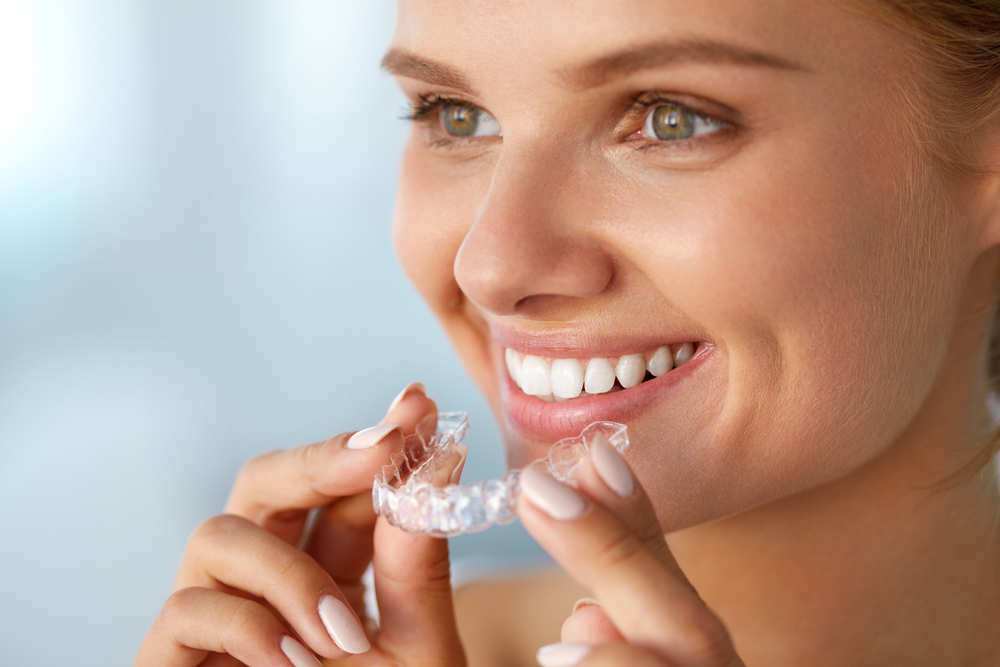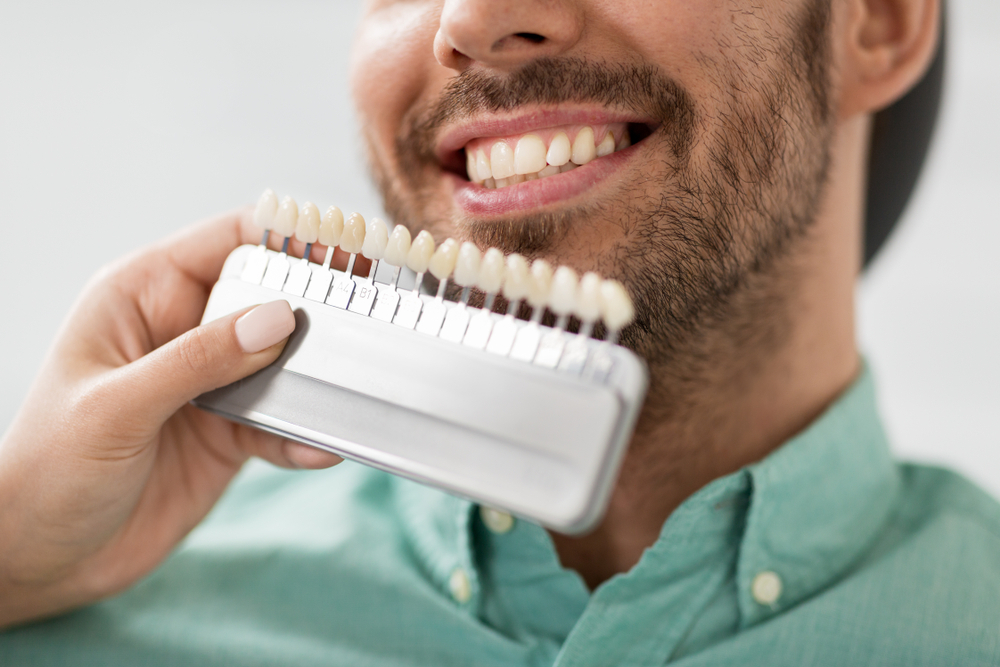An enchanting smile has the power to transform one’s confidence and create a memorable impact. When it comes to achieving a radiant and impeccable smile, dental veneers have emerged as a widely embraced and effective solution. In this blog, we will delve into the realm of dental veneers, examining their advantages, the procedural steps, related expenses, and the remarkable outcomes they can deliver.
Table of Contents
ToggleImportance of a confident smile
Your smile serves as a silent ambassador, leaving a lasting impression on those you encounter. The significance of a confident grin extends beyond its visual appeal, influencing how others perceive your approachability and self-assuredness. In social settings, a genuine smile can be a powerful catalyst for building connections and establishing positive relationships.
For those looking to enhance their confidence through an improved smile, dental veneers offer a transformative solution. Whether addressing discoloration, misalignment, or other cosmetic concerns, veneers provide a tailored and natural-looking enhancement. With their durable and aesthetically pleasing results, veneers empower individuals to confidently display their smiles, positively influencing their self-image in personal and professional settings.
Understanding Dental Veneers & Costs
Dental veneers represent a transformative element within the realm of cosmetic dentistry. These exceptionally thin shells, meticulously crafted from either porcelain or resin, are bespoke in design to cover the frontal part of teeth. Serving as adept concealers, they effectively mask imperfections such as discoloration or chips, contributing to the attainment of an aesthetically pleasing smile.
Veneers prove particularly advantageous in addressing concerns such as misalignment or tooth gaps. The cost of it may vary from place to place. But in general, composite veneers are generally less expensive than porcelain veneers. Prices may range from $300 to $1,500 per tooth. Porcelain veneers are typically more expensive due to the laboratory work involved in their fabrication. Prices may range from $800 to $2,500 or more per tooth.
Types of Dental Veneers
- Porcelain Veneers: Porcelain veneers, constructed from premium-quality porcelain, are renowned for their robustness, resistance to stains, and capacity to replicate the natural translucency of teeth. They stand out as a favoured option for those seeking a durable and visually appealing transformation for their smiles.
- Composite Veneers: Composite veneers, composed of a resin material matching the colour of natural teeth, present a cost-effective substitute for porcelain. Although they might be susceptible to staining over time in comparison to porcelain, they provide a swifter application process and can be conveniently repaired in case of damage.
Other Types Include
- Lumineers: A specific brand of ultra-thin porcelain veneers, Lumineers are designed to require minimal to no enamel removal during the application process. This makes them a reversible option, suitable for individuals seeking a less invasive approach to smile enhancement.
- Palatal Veneers: These veneers are applied to the back surface of the teeth, addressing aesthetic concerns without altering the front appearance. Palatal veneers are an ideal choice for individuals with minor imperfections or those looking for a conservative approach to smile enhancement.
Process of Getting Dental Veneers
The process is not that complex but having a detailed knowledge about what to do, how to do and what entails the process is a must.
- Consultation: The dentist thoroughly examines and then discusses cosmetic goals and assess veneer suitability with you.
- Preparation: Enamel is minimally removed from the teeth to make space for veneers.
- Impressions: Dental impressions or digital scans are taken as a guide for crafting custom veneers. So they can formulate accordingly.
- Veneer Creation: Skilled technicians create custom veneers in a dental laboratory on the basis of the scans of your impressions. Sometimes, if need be, temporary veneers are also made to be worn as a pre-treatment step.
- Try-In and Approval: Temporary veneers are optionally placed, and a try-in session allows for approval of fit and appearance.
- Bonding: Veneers are bonded to teeth using a special adhesive for a secure fit.
- Curing and Adjustments: A curing light hardens the adhesive, and final adjustments ensure comfort and a proper bite.
- Follow-Up: Schedule follow-up appointments to monitor veneer performance and maintain regular dental check-ups.
Benefits of Dental Veneers
Dental veneers have become a beacon of hope for individuals aspiring to transform their smiles and boost their confidence. These wafer-thin shells, customised to fit over the front surface of teeth, offer a range of benefits that extend beyond mere cosmetic enhancement. Here’s a closer look at the advantages of dental veneers:
- Cosmetic Transformation: Dental veneers serve as a versatile solution to a myriad of cosmetic dental issues, including stains, discoloration, chipped teeth, gaps, and minor misalignments. They provide a comprehensive aesthetic makeover, resulting in a radiant and harmonious smile.
- Durable and Long-Lasting: Porcelain veneers, in particular, are renowned for their durability and resistance to stains. With proper care, veneers can withstand the daily wear and tear, providing long-lasting results and a sustained improvement in the appearance of the smile.
- Versatility: Veneers are incredibly versatile, addressing a variety of cosmetic concerns in one comprehensive treatment. Whether it’s correcting the shape, size, or colour of teeth, veneers offer a customisable solution tailored to the unique needs of each patient.
- Stain Resistance: Porcelain veneers boast exceptional stain resistance, making them a preferred option for those who consume foods and drinks known to discolour natural teeth. This attribute ensures the enduring brilliance and vibrancy of the veneers, contributing to a long-lasting enhancement of the smile’s aesthetic appeal.
- Natural Appearance: With materials such as porcelain or composite resin, veneers closely emulate the natural appearance of teeth. Their translucency and light-reflective qualities facilitate a seamless blend with surrounding teeth, resulting in a realistic and naturally appealing aesthetic.
- Minimally Invasive Procedure: The acquisition of dental veneers is notably minimally invasive in comparison to alternative cosmetic procedures. Typically, only a modest amount of enamel removal is necessary, preserving a significant portion of the natural tooth structure. This aspect contributes to a less intrusive and more conservative approach in enhancing the teeth’s appearance.
- Boost in Confidence: Beyond the physical transformation, dental veneers contribute significantly to an individual’s self-esteem and confidence. A radiant and improved smile can have a positive impact on social interactions, personal relationships, and even professional endeavours.
- Conservative Approach to Smile Enhancement: Veneers offer a conservative option for smile enhancement, requiring minimal alteration to the natural teeth compared to some alternative treatments like crowns. This makes them an appealing choice for those looking to improve their smiles without significant tooth reduction.
Maintaining Dental Veneers
Veneers require a lot of care and attention, especially in the beginning. Here are a few tips and suggestions to maintain them:
- Regular Oral Hygiene: Sustain optimal oral hygiene by adhering to a thorough routine, brushing your teeth a minimum of twice daily, and daily flossing. Employ a non-abrasive toothpaste and a soft-bristle toothbrush to prevent potential damage to the surface of the veneers. This practice ensures the longevity and well-being of your dental veneers.
- Choose Non-Abrasive Dental Products: Opt for dental care products that are non-abrasive to avoid scratching or dulling the surface of the veneers. Consult your dentist for recommendations on suitable toothpaste and mouthwash specifically designed for cosmetic dentistry.
- Regular Dental Check-ups: Schedule regular dental check-ups and professional cleanings to ensure the overall health of your teeth and veneers. If there is any issue, the dentist will be able to identify it in its early stages.
- Teeth Grinding Resistance: To mitigate the impact of teeth grinding, particularly during nighttime, it is advisable to utilise a night guard. Bruxism, or teeth grinding, presents potential risks to both natural teeth and veneers. The night guard serves as a protective barrier, diminishing the likelihood of excessive wear and tear, thereby safeguarding the overall health and integrity of your teeth and veneers.
- Mitigate Staining Risks: Despite the stain-resistant nature of porcelain veneers, exercise prudence by restricting the consumption of substances notorious for discoloration, such as coffee, tea, red wine, and tobacco. In the event of indulgence, practice rinsing your mouth with water afterwards to maintain the pristine appearance of the veneers.
Get Dental Veneers Without Fear!
Whether you’re looking to correct discoloration, gaps, or misalignments, our expert team is here to guide you through the process. Schedule your personalised veneer consultation now and discover the transformative benefits of this cosmetic dentistry solution. Don’t miss out on the opportunity to showcase your best smile – take the first step towards a more radiant you! Schedule an appointment with us at smilogy today. Your dream smile awaits!
FAQs
Dental veneers, composed of porcelain or composite resin, address cosmetic and functional issues. They cover severe discoloration, repair minor chips and cracks, create the illusion of straighter teeth for minor misalignments, close small gaps, and restore the appearance of worn or uneven teeth, enhancing both aesthetics and function.
Out of all the types, there are two types of veneers that are the safest:
- Porcelain veneers are durable and stain-resistant but involve enamel removal, making them slightly more invasive.
- Composite resin veneers, applied directly in the dental office, are less expensive and less invasive but may be more prone to staining and have a shorter lifespan than porcelain veneers.
Dental veneer placement is generally not painful, with local anaesthesia used during preparation. Post-procedure, some may encounter temporary sensitivity or discomfort as they adapt to the dental changes.
Yes, you can eat normally with veneers. However, it’s advisable to avoid biting into hard objects or using your teeth for activities like opening packages, as this could potentially damage the veneers. While veneers are durable, they are not indestructible, and taking care of them by avoiding excessive force or pressure is recommended.
Porcelain or composite resin veneers require minimal upkeep. Consistent oral hygiene practices, like brushing, flossing, and regular check-ups, ensure the overall health of teeth, including those with veneers. Veneer lifespan varies based on care and type. With proper maintenance, they can last for years before requiring significant attention or replacement. Regular dental assessments aid in timely recommendations.

Dr Luke Cronin
As a graduate of the University of Queensland (2000, 2013) and the University of Sydney (2006), Dr Cronin is one of Australia’s leading cosmetic dentists, specialising in creating stunning new smiles with cutting edge cosmetic dentistry techniques, including clear aligners, whitening and porcelain veneers.
Dr Cronin's work has been showcased in Vogue, Harpers Bazaar and Elle magazine and in 2019 he was awarded Australasian Dentist of the Year by My Face My Body in 2019.
Acknowledged an expert in his field for segments on the Today Show and House of Wellness, Dr Cronin now offers his first-class cosmetic treatments and customer care at smilogy.







